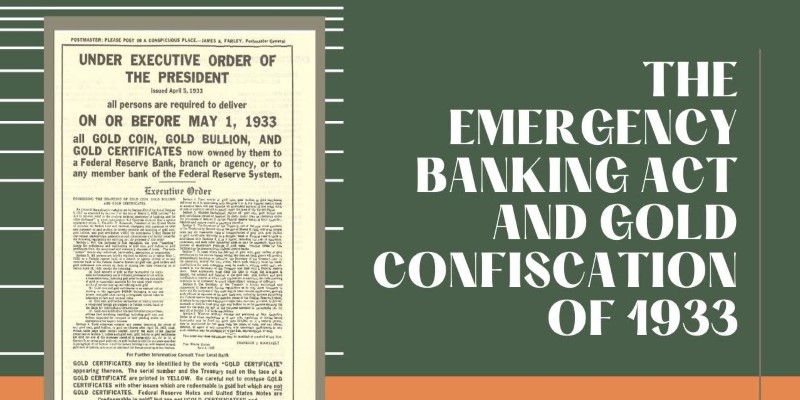Navigating Financial Seas: Inflation's Ripple on Your Savings and Investments
Nov 29, 2023 By Triston Martin
Inflation is like that sneaky guest at a party – it creeps in uninvited and wreaks havoc on your financial plans. In this guide, we'll explore the impact of inflation on your hard-earned money, especially your savings and investments.
But fear not! We won't drown you in financial jargon; instead, we'll break it down into bite-sized pieces, discussing the nuances of inflation and, most importantly, how to plan to keep your finances afloat.
Understanding the Inflation Conundrum
Let's start with the basics. Inflation is the silent eroder of purchasing power. When prices rise, the value of your money decreases, and suddenly, that coffee you used to buy for a dollar is now a luxury at twice the price. This phenomenon affects every aspect of our lives, but its impact on savings and investments is profound.
How to Cope with Inflation's Sneaky Attack on Savings?
Your savings account might seem like a haven, but inflation can diminish its value over time. You lose money if your savings interest rate is lower than the inflation rate. Consider this: stashing cash under your mattress might feel secure, but its purchasing power diminishes daily. So, how do you combat this stealthy adversary?
Diversify Your Savings Portfolio
Don't put all your eggs in one basket. Explore a variety of savings options to create a well-rounded portfolio that can withstand the impact of inflation. High-yield savings accounts, for instance, offer better interest rates than traditional ones, letting your money grow more effectively.
Certificates of deposit (CDs) provide a fixed interest rate over a specified period, offering stability. Consider other low-risk investments to further diversify and protect your savings from the erosive effects of inflation.
Regularly Review and Adjust
The financial landscape is ever-changing, with interest rates and inflation rates fluctuating. It's crucial to periodically review your savings strategy. Keep a vigilant eye on economic indicators and market trends.
You can make informed decisions about adjusting your savings allocations by staying informed. Regular reviews ensure that your savings strategy remains adaptive, allowing you to stay ahead of the inflation curve and preserve the real value of your money.
Consider Inflation-Linked Bonds
In the arsenal of financial instruments, inflation-linked bonds stand out as a powerful weapon against the eroding effects of inflation. Unlike traditional bonds, these financial instruments are designed to protect your savings.
The interest rate on inflation-linked bonds adjusts with the inflation rate, ensuring that your savings maintain their real value. This can be a strategic addition to your savings portfolio, offering a reliable shield against the stealthy adversary that is inflation.
Explore Tax-Advantaged Savings Accounts
When considering where to stash your savings, don't overlook the benefits of tax-advantaged savings accounts. These accounts, such as Individual Retirement Accounts (IRAs) and 401(k)s, offer tax advantages that can boost your savings over time.
Contributions to these accounts may be tax-deductible, and your earnings can grow tax-deferred until withdrawal. Exploring these options can provide financial security and potential tax benefits, enhancing your overall savings strategy.
Automate Your Savings

Life can get busy, and savings may take a back seat in the hustle and bustle. Combat this by automating your savings. Set up automatic transfers from your checking account to your savings account. Doing so ensures that a portion of your income is consistently allocated to savings without requiring constant manual intervention.
How to Better Handle the Inflation's Impact on Investments?
Now, let's talk about investments. Whether you're a novice or a seasoned investor, inflation affects everyone. Your investment returns need to outpace inflation to generate real profits. Otherwise, you might find a growing number on paper but a shrinking purchasing power.
Embrace Real Assets
When navigating the terrain of inflation, consider investing in real assets. Tangible investments like real estate, precious metals, or commodities have a historical record of retaining or increasing value during inflationary periods.
Real estate, for instance, acts as a hedge against inflation and generates potential rental income. Similarly, precious metals like gold and silver are often viewed as stores of value, offering stability that can counter the impact of rising prices.
Stocks – A Double-Edged Sword
While the allure of stocks lies in their potential for great returns, they can be a double-edged sword during inflation. Stock markets can be volatile, and the value of stocks may fluctuate significantly.
To navigate this, focus on investing in companies with strong fundamentals and a history of weathering economic storms. Look for companies with consistent earnings, low debt levels, and a competitive edge in their industry.
Explore TIPS
For a direct shield against the erosive effects of inflation on your investment returns, consider TIPS (Treasury Inflation-Protected Securities). These government-backed securities are specifically designed to adjust to inflation.
The interest rate on TIPS increases with rising inflation, ensuring that your investment keeps pace with the changing economic landscape. While they may not offer the high returns associated with riskier investments, TIPS provides a reliable and stable option for protecting your investment portfolio from the corrosive effects of inflation.
Dividend-Paying Stocks
Another strategy to combat the impact of inflation is to consider dividend-paying stocks. Companies that consistently pay dividends can provide a steady income stream as a buffer against rising prices. Reinvesting dividends can further enhance the power of compounding, allowing your investment to grow over time.
Global Diversification

Diversifying your investment portfolio globally can be an effective strategy to mitigate the impact of inflation. Different economies may experience varying inflation levels, and by globally diversifying, you spread your risk across regions. This approach can help safeguard your portfolio from being disproportionately affected by inflation in a specific country or region.
Conclusion
Inflation is a financial reality we can't escape, but armed with knowledge and a well-thought-out plan, we can navigate its impact on our savings and investments. Remember, the key is to stay informed, diversify your financial portfolio, and consistently review and adjust your strategies.





